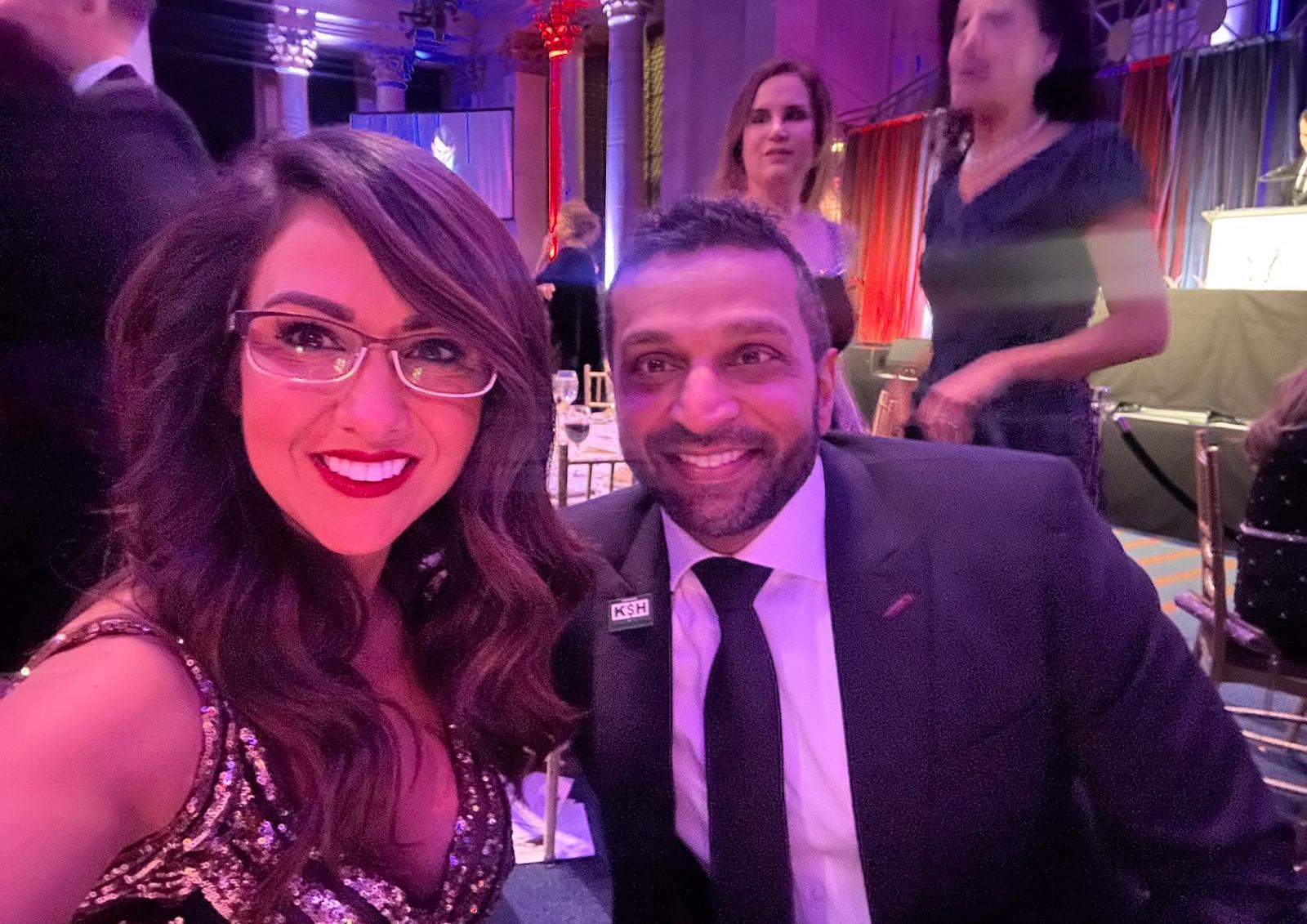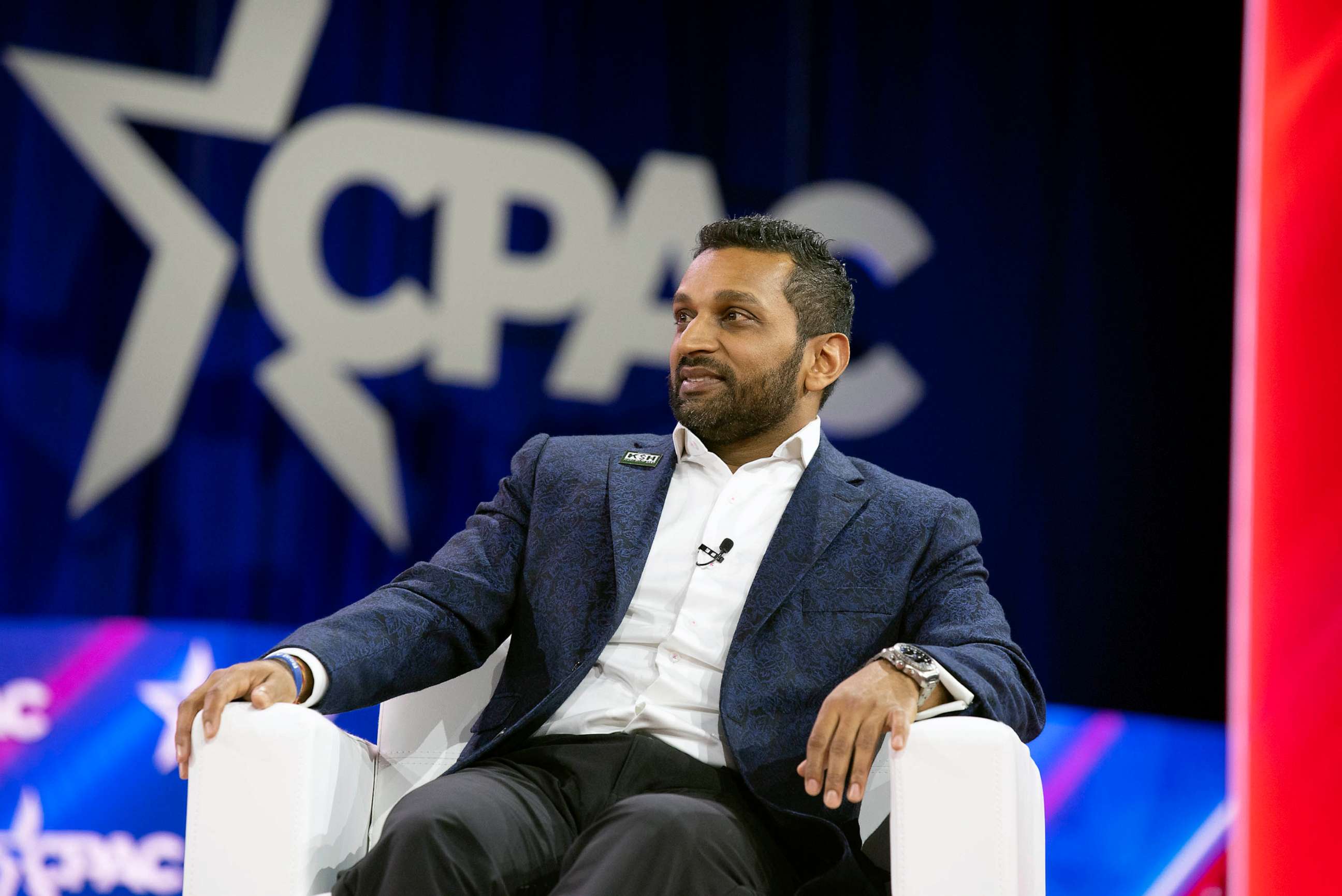Kash Patel's Eye Surgery: The Truth Revealed + Benefits
Ever wondered why a figure as prominent as Kash Patel would undergo eye surgery? The answer is more than skin deep: its a strategic move that underscores the relentless pursuit of personal and professional excellence that defines his career.
The narrative surrounding Kash Patel's decision to undergo eye surgery has rapidly evolved from a personal health matter into a subject of widespread public interest. It's not merely the procedure itself that commands attention, but rather the confluence of factorspersonal, professional, and publicthat elevate this event beyond the ordinary. The surgery's implications extend into the realms of career longevity, public image management, and the broader discourse on health and wellness among high-profile individuals. Patel, a name synonymous with legal acumen and political commentary, now finds himself at the intersection of medical advancements and public scrutiny, a space where every decision carries significant weight.
| Attribute | Details |
|---|---|
| Full Name | Kashyap "Kash" Patel |
| Date of Birth | March 8, 1981 |
| Place of Birth | Queens, New York, USA |
| Education | St. John's University (B.S., J.D.) |
| Profession | Attorney, Political Commentator, Former Government Official |
| Career Highlights |
|
| Political Affiliation | Republican |
| Known For | His involvement in controversial investigations and his vocal presence in political commentary |
| Website | Official Website |
Born Kashyap Patel, and known widely as Kash Patel, his roots in Queens, New York, provide a foundation to a career that has traversed law, politics, and public service. As an attorney, Patel's sharp intellect and unwavering dedication have distinguished him in complex legal environments. His tenure within the Trump administration, particularly as chief of staff to the acting Defense Secretary, marked a significant chapter, thrusting him into the center of national security dialogues and policy-making. But Patel's narrative is far from static; it's a continuously unfolding saga, with his recent eye surgery adding a fresh dimension to his already multifaceted persona.
- Filmyfly Bollywood Movies Stream Watch Enjoy Year
- Vegamovies 2025 Your Guide Best Free Movie Streaming Sites
Why would someone like Kash Patel, a figure accustomed to the relentless pace of Washington D.C. and the demands of high-stakes legal battles, opt for elective eye surgery? The answer lies in the confluence of factors that drive individuals to seek vision correction in today's world. While there has been no explicit disclosure of Patel's specific reasons, we can extrapolate based on general trends and the demands of his profession. The pressures of constant screen exposure, inherent to modern legal and political work, coupled with the natural wear and tear of aging, often lead to deteriorating vision. For Patel, who operates in environments where precision and clarity are paramount, maintaining optimal vision isn't merely a matter of personal comfort, but a professional imperative.
Eye surgery, in its myriad forms, has evolved from a niche medical intervention into a mainstream solution for vision correction. Among the most prevalent options are LASIK (Laser-Assisted In Situ Keratomileusis), PRK (Photorefractive Keratectomy), and cataract surgery. LASIK, renowned for its rapid recovery times and effectiveness in treating myopia, hyperopia, and astigmatism, remains a popular choice. PRK, a predecessor to LASIK, involves a different corneal reshaping technique and is often recommended for patients with thinner corneas. Cataract surgery, typically sought by older individuals, involves the removal of a clouded lens and replacement with an artificial one, restoring clarity of vision. While the exact nature of Patel's surgery remains undisclosed, these procedures represent the spectrum of options available to address vision impairments.
Assuming Patel underwent a modern vision correction procedure, the surgical process would have involved state-of-the-art technology and meticulous execution. Modern LASIK, for example, utilizes femtosecond lasers to create a precise corneal flap, followed by excimer lasers to reshape the underlying corneal tissue. The entire procedure typically lasts no more than 30 minutes per eye, with patients often reporting minimal discomfort thanks to local anesthesia. Precision is paramount, with surgeons relying on sophisticated imaging systems to guide the laser and ensure optimal outcomes. These advancements have not only enhanced the effectiveness of eye surgeries but also significantly reduced the risk of complications.
- Kannada Cinema Buzz Movierulz Kannada 2025 Whats Trending
- Inside David Muirs Wedding A Love Story You Cant Miss
The post-operative phase of eye surgery is critical for achieving optimal results. Patients are typically prescribed a regimen of eye drops to prevent infection and promote healing. While recovery timelines vary depending on the procedure and individual healing rates, certain guidelines remain universal. These include avoiding strenuous activities, refraining from rubbing the eyes, and protecting the eyes from direct sunlight. For someone with a demanding schedule like Patel, adhering to these guidelines would necessitate careful planning and discipline. Follow-up appointments are essential for monitoring progress and addressing any potential complications. The success of the surgery hinges not only on the surgeon's skill but also on the patient's commitment to the recovery process.
The implications of Kash Patel's eye surgery extend far beyond personal health; they touch upon his professional trajectory and public persona. In the high-stakes world of law and political commentary, visual acuity is indispensable. The ability to scrutinize documents, engage in debates, and deliver compelling presentations hinges on clear, unobstructed vision. By investing in eye surgery, Patel has not only enhanced his personal well-being but also fortified his professional capabilities. Improved vision translates to increased confidence, reduced reliance on corrective lenses, and an overall sharper imagequalities that are invaluable in his line of work. The ability to maintain focus and clarity under pressure is a hallmark of successful leaders, and Patel's decision underscores his commitment to excellence in all facets of his life.
Public reaction to Kash Patel's eye surgery has been largely supportive, reflecting a broader trend of destigmatization surrounding elective medical procedures. Social media platforms have buzzed with messages of encouragement and well-wishes, highlighting the public's fascination with the lives of prominent figures. Many view Patel's decision as a proactive step toward self-improvement, aligning with a cultural emphasis on health and wellness. Others see it as a testament to his commitment to maintaining a competitive edge in his career. Regardless of individual interpretations, the public discourse surrounding Patel's surgery underscores the growing acceptance of medical interventions aimed at enhancing quality of life. This transparency can also normalize such procedures, encouraging others who may be considering similar options to seek information and make informed decisions.
The broader benefits of eye surgery extend beyond the individual, impacting society as a whole. By reducing reliance on corrective lenses, eye surgery can lead to increased productivity, improved safety, and enhanced quality of life. Individuals who undergo vision correction often report increased self-confidence and a greater sense of freedom in their daily activities. The economic benefits are also significant, as reduced healthcare costs associated with vision-related issues can free up resources for other areas. Moreover, advancements in eye surgery technology continue to drive innovation, leading to more effective and less invasive procedures. As technology evolves, the potential benefits of eye surgery will only continue to expand, transforming the landscape of vision care.
While eye surgeries are generally considered safe, it's essential to acknowledge the potential risks involved. These risks can range from minor inconveniences, such as temporary dry eye or glare, to more serious complications, such as infection or corneal damage. However, the likelihood of these complications is relatively low, particularly when the surgery is performed by an experienced and qualified surgeon using state-of-the-art technology. Patients should engage in thorough consultations with their eye care professionals to discuss their individual risk factors and ensure they are fully informed before proceeding with surgery. Pre-operative evaluations are crucial for identifying any underlying conditions that could increase the risk of complications. Weighing the potential benefits against the potential risks is a fundamental aspect of making informed healthcare decisions.
The cost of eye surgery varies depending on the type of procedure, the location, and the surgeon's expertise. LASIK surgery, for example, typically ranges from $2,000 to $4,000 per eye, while cataract surgery can cost anywhere from $3,000 to $8,000 per eye. Insurance coverage for elective eye surgeries is often limited, so patients should check with their providers to determine their out-of-pocket expenses. Financing options, such as payment plans and medical credit cards, are often available to help make these procedures more accessible. The cost of eye surgery should be viewed as an investment in long-term vision health and overall quality of life. When considering the potential benefits of improved vision and reduced reliance on corrective lenses, the financial outlay can be justified as a prudent investment in personal well-being. For someone like Kash Patel, the investment in clear, unencumbered vision likely aligns with his commitment to optimizing his professional capabilities.
Ultimately, the decision to undergo eye surgery is a personal one, driven by individual needs, preferences, and circumstances. For Kash Patel, the decision reflects a proactive approach to health and a commitment to maintaining a competitive edge in his demanding career. The surgery's implications extend beyond personal well-being, touching upon his public image and professional capabilities. While the specific details of Patel's surgery remain undisclosed, the broader narrative underscores the growing acceptance of medical interventions aimed at enhancing quality of life. As technology continues to advance, eye surgery will likely become even more accessible and effective, transforming the landscape of vision care and empowering individuals to achieve their full potential.
- Who is Kash Patel Anyway?
- Biography of Kash Patel
- Why Did Kash Patel Get Eye Surgery?
- Types of Eye Surgeries
- The Kash Patel Eye Surgery Procedure
- What to Expect During Recovery
- Impact on Kash Patel’s Career
- Public Reaction to Kash Patel’s Decision
- Benefits of Eye Surgery
- Are There Any Risks Involved?
- Cost of Eye Surgery
- Is It Worth the Investment?
- Hikaru Nagi Sone 436 The Rising Star You Need To Know
- Anna Malygons Guide Mastering Digital Privacy In The Modern Age

Patel Eye Care & Laser Centre

Is Kash Patel Married? Inside Trump's FBI Pick's Family Life

Kash Patel Eye Surgery Everything You Need To Know About The Procedure